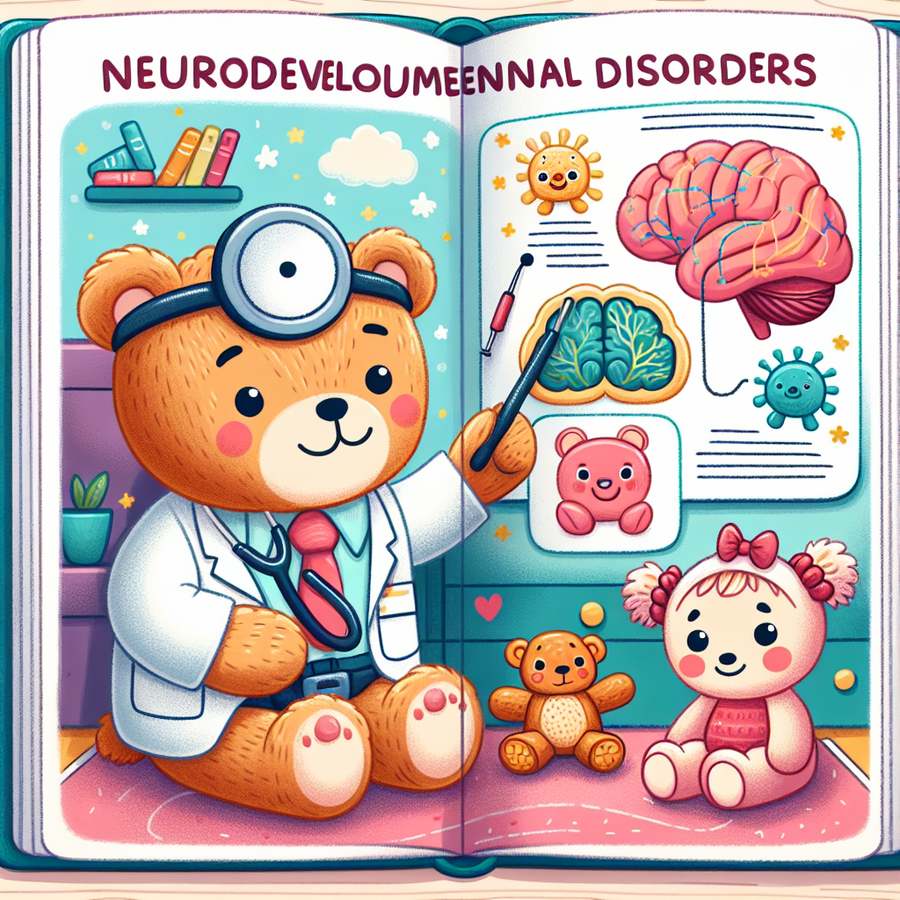Neurodevelopmental disorders are a group of conditions that affect the development of the nervous system, leading to impairment of personal, social, academic, or occupational functioning. Understanding these disorders can be daunting for new parents, but gaining insights into their nature, symptoms, and management strategies is essential for early intervention and support. This article aims to provide a comprehensive overview of neurodevelopmental disorders, helping parents navigate the complexities of these conditions.
What are Neurodevelopmental Disorders?
Neurodevelopmental disorders encompass a wide range of conditions, including autism spectrum disorder, attention-deficit/hyperactivity disorder (ADHD), intellectual disabilities, learning disorders, and motor disorders. These conditions typically manifest early in development, often before the child enters school, and can impact various aspects of a child’s life. Although the exact causes of neurodevelopmental disorders are not fully understood, they are believed to result from a combination of genetic, environmental, and neurological factors.
Early identification and intervention are crucial for children with neurodevelopmental disorders. Interventions can include specialized education plans, behavioral therapy, medication, and supportive services. The goal is to enhance the child’s development, reduce symptoms, and support the family. For more information on the importance of early detection and intervention strategies, you can visit this external link provided by the Centers for Disease Control and Prevention (CDC).
How to Recognize Symptoms of Neurodevelopmental Disorders in Your Child
Recognizing the early signs of neurodevelopmental disorders can be challenging, as symptoms vary widely among children and across different disorders. However, some common signs include delays in reaching language or motor milestones, difficulties with social interactions, repetitive behaviors, challenges with learning and attention, and problems with coordination. It’s important for parents to observe their child’s development and consult with healthcare professionals if there are concerns.
Assessment and diagnosis involve a comprehensive evaluation by a multidisciplinary team, including pediatricians, neurologists, psychologists, and other specialists. This evaluation may include clinical examinations, developmental assessments, and possibly genetic testing. For a detailed guide on understanding developmental milestones and when to seek help, check out Developmental Milestones on our website.
Supporting Your Child with a Neurodevelopmental Disorder
Supporting a child with a neurodevelopmental disorder requires patience, understanding, and access to resources. It’s essential to build a support system that includes family, friends, healthcare providers, and community resources. Engaging with support groups and organizations can provide valuable information and emotional support to families.
Parents should also focus on creating a structured and supportive environment at home that accommodates their child’s needs. This might involve establishing routines, using visual aids for communication, and adapting learning and play activities to the child’s abilities. For more strategies on supporting your child, Autism and ADHD resources available on our site offer specific guidance and tips.
The Role of Professionals in Managing Neurodevelopmental Disorders
Professional support is vital in managing neurodevelopmental disorders. A multi-disciplinary team approach ensures that the child receives comprehensive care tailored to their unique needs. This team may include pediatricians, neurologists, psychologists, speech and language therapists, occupational therapists, and special education teachers.
Therapeutic interventions may include speech and language therapy, occupational therapy, physical therapy, and behavioral therapies. These interventions are designed to improve the child’s functional abilities, communication skills, and behavioral challenges. For additional resources on therapy options and finding professionals, visit Speech Therapy and Occupational Therapy on our website.
Conclusion
Neurodevelopmental disorders can present significant challenges for children and their families, but early identification and intervention can lead to better outcomes. By understanding these conditions, recognizing their symptoms, and accessing the right support and resources, parents can play a crucial role in supporting their child’s development and well-being. Remember, you are not alone, and there are many resources and communities available to support you on this journey.
For further reading and resources related to neurodevelopmental disorders and child development, be sure to explore other articles and links on our website, such as Neurodevelopmental Disorders for more in-depth information.













